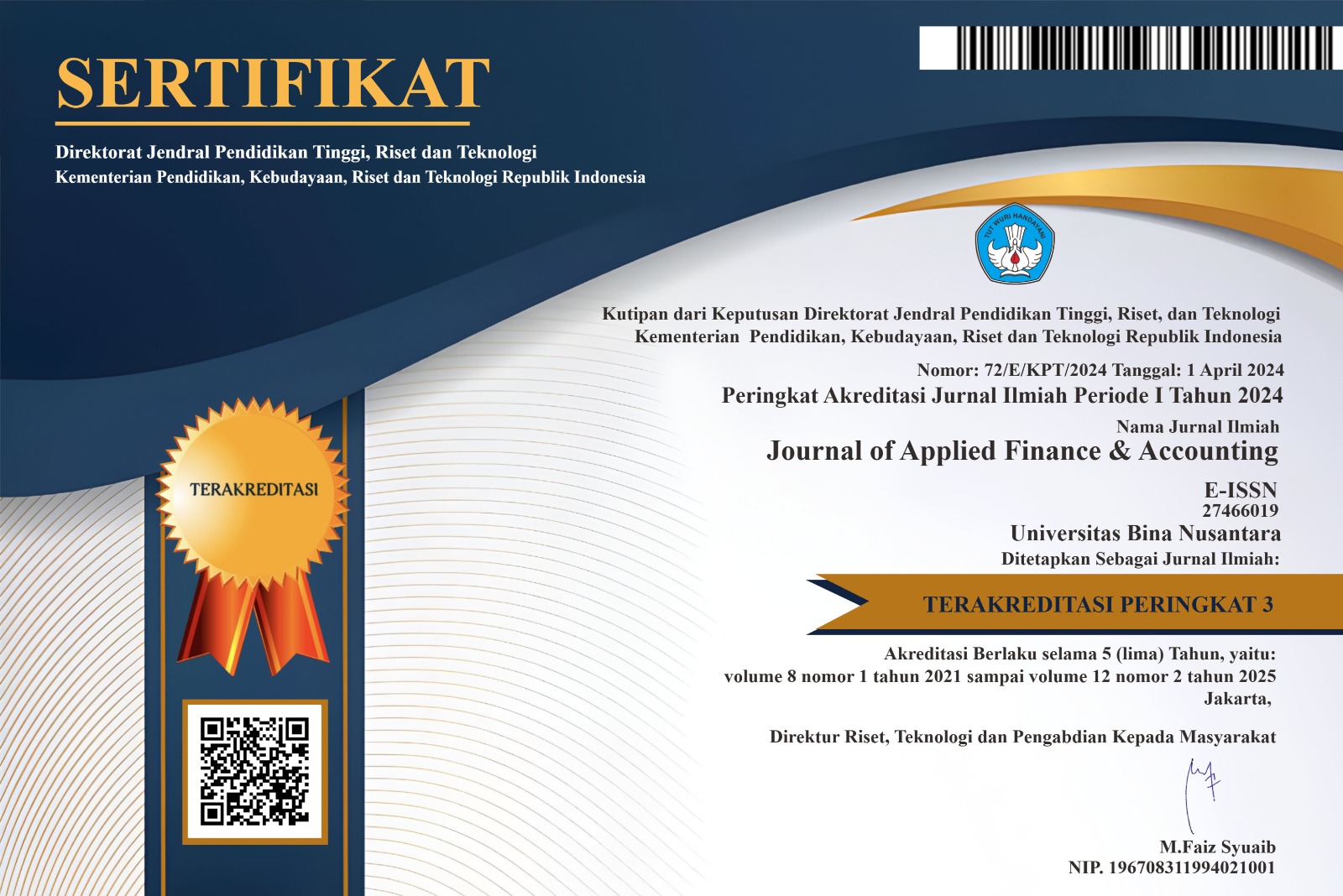Analysis on Accounting Conservatism and CSR Disclosures of Indonesian Banks Listed on IDX from 2004 to 2007
DOI:
https://doi.org/10.21512/jafa.v2i1.150Keywords:
Conservatism, discretionary accruals, corporate social responsibility, rankings, banks, IndonesiaAbstract
Disclosing corporate social responsibility (CSR) activities is mandatory in Indonesia as  regulated by the government. This research investigates whether Indonesian companies are internally motivated to voluntarily conduct their social responsibility agenda.  First, this research examines the conservatism in financial reporting practices of Indonesian banks. It also analyzes the relationship between conservatism and CSR disclosure. Using 21 Indonesian banks that went public in 2003-2007 as sample, this research conducts a content analysis on their financial reports to measure the conservatism and the CSR disclosure index. The findings of this research reveal that Indonesian banks are, on average, conservative in their financial reporting. This research also provides the ranking of the banks under study in terms of conservatism. Further analysis shows that there is no clear evidence to support the relationship between conservatism and the Indonesian banks’ CSR reporting. Overall, this research concludes that CSR disclosure practices in Indonesian banks are driven by government regulation. This research does not find any internal motive of the sample banks in disclosing their CSR activities voluntarily.
Downloads
Published
Issue
Section
License
Authors who publish with this journal agree to the following terms:
Authors retain copyright and grant the journal right of first publication with the work simultaneously licensed under a Creative Commons Attribution License that allows others to share the work with an acknowledgement of the work's authorship and initial publication in this journal.
Authors are able to enter into separate, additional contractual arrangements for the non-exclusive distribution of the journal's published version of the work (e.g., post it to an institutional repository or publish it in a book), with an acknowledgement of its initial publication in this journal.
Authors are permitted and encouraged to post their work online (e.g., in institutional repositories or on their website) prior to and during the submission process, as it can lead to productive exchanges, as well as earlier and greater citation of published work (See The Effect of Open Access).




